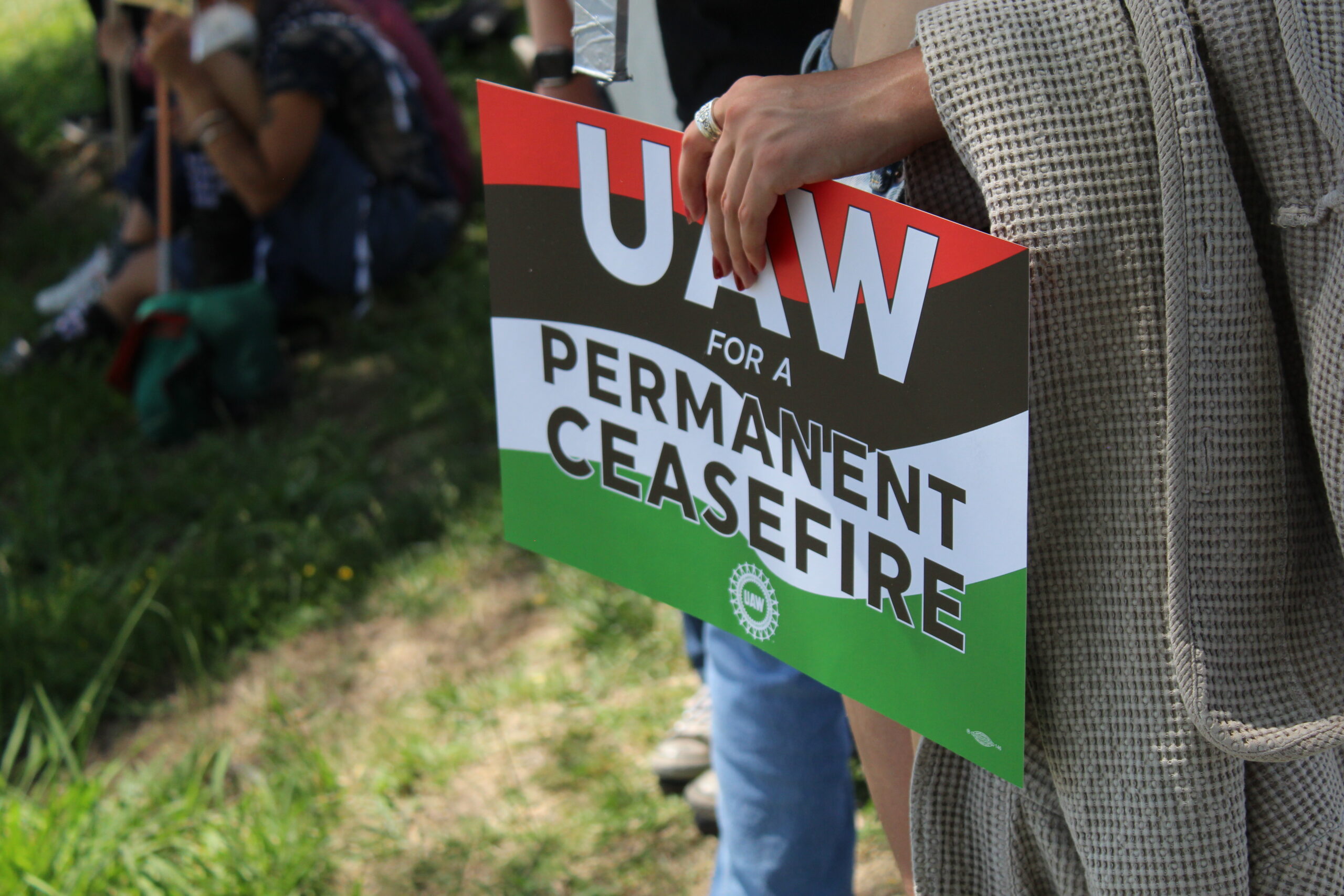In response to the actions undertaken by various University of California (UC) administration in regards to the student protests at the University of California, Los Angeles (UCLA), and UC San Diego (UCSD), the United Auto Workers (UAW) 4811 filed an Unfair Labor Practice Charge against the Regents of the University of California. As of recently, the UC Office of the President (UCOP) has taken up the labor complaints and alleged that “this strike is illegal.”
UAW 4011 claimed that the UC system violated multiple labor violations, some of which are, the UC Regents interfered with and retaliated against members for “exercising their rights to engage in peaceful political protest,” and “changed the terms and conditions of employment regarding Employees’ rights to protest peacefully.”
In a Twitter post made by UAW 4811 on May 17, they called for UC Santa Cruz (UCSC) to be the first university to stand up. This action will take place on May 20 and “all Santa Cruz UAW 4811 academic workers should stop all teaching and wind down research work.”
In their report, UAW 4011 cited the action that the UC Regents undertook at UCLA where they requested “forceful police intervention” and “allowed and condoned a violent attack” against peaceful protestors, as well as the action taken at UC Irvine (UCI) and UCSD where UC Regents had “issued suspension notices to peaceful protestors,” claiming that this penalty was only previously issued for “the most egregious misconduct” and that “this disparate, content-based disfavor toward pro-Palestine speech is an affront to the rights of employees to engage in peaceful protest.”
As listed on their website, UAW 4811 called for the UC to negotiate and come to an agreement by addressing five key points:
“Amnesty for all academic employees, students, student groups, faculty, and staff who
face disciplinary action or arrest due to protest.”
“Right to free speech and political expression on campus.”
“Divestment from UC’s known investments in weapons manufacturers, military
contractors, and companies profiting from Israel’s war on Gaza.”
“Disclosure of all funding sources and investments, including contracts, grants, gifts, and investments, through a publicly available, publicly accessible, and up-to-date database.”
“Empower researchers to opt out from funding sources tied to the military or oppression of Palestinians. The UC must provide centralized transitional funding to workers whose funding is tied to the military or foundations that support Palestinian oppression.”
On May 16, in response to the allegations made against them, Melissa Matella, Associate Vice President of Systemwide Labor Relations explained that the “UAW’s decision to strike over nonlabor issues violates the no-strike clause of their contracts with UC and sets a dangerous and far-reaching precedent that social, political and cultural issues – no matter how valid – that are not labor-related can support a labor strike.” Further alleged in the statement was that “the [UC Regents] had no indication that the protests were connected to any labor dispute or the terms of employment for students.”
However, in the Twitter post which called UCSC to action, they specify a few of the unfair labor practices that the UC has allowed and committed, including “actively risking the health and safety of UAW 4811 members and members of the university community by creating an unsafe work environment. Making unilateral changes to working conditions that have impacted our teaching, our work obligations, our safety and our academic freedom. Summoning the police to forcibly eject and arrest UAW 4811 members in retaliation for engaging in peaceful protected activity. Demanding workplace related changes causing a chilling effect on future considered actions by the Union and its members and more.”
Addressing the UC statement, Heeba Hartit, a fifth year doctoral student and instructor in the University Writing Program, and Academic Student Employee Unit Chair for UAW 4811 at Riverside reiterated that “The UC has committed various unfair labor practices which has led to the strike in the first place” and that “it is actually against the law for them to deem our strike unlawful. That is entirely within the purview of the California Public Employment Relations Board.”
From May 13 – 15, “the ability to authorize the executive board to authorize a strike was put up to vote to membership. Members can have a voice on whether or not they not they wanted to give the executive board clearance to authorize a strike” according to Hartit. This authorization would allow for the UAW to call for a Stand Up Strike.
The UAW 4811 are a union of 48,000 academic workers at the UC system. According to a Twitter post, 19,780 academic workers “voted on whether to authorize [the] union’s Executive Board to call a strike,” which resulted in 79% of participating members voting “YES” to authorize the strike “if circumstances justify.” While the option to abstain was not offered, some were just not present to participate in the vote due to external factors such as work breaks, and others chose not to vote in general due to other miscellaneous factors such as conflicts of interest.
Hartit explained that the situation at UCR is “interesting” in regard to the strike. A few weeks prior, UCR’s pro-Palestinian protestors were the first to reach an agreement with administration during their encampment period. At the moment, she emphasizes that it “is our responsibility to demonstrate solidarity [with] other campuses.”
While UCR has not yet been called to action, as various UCs will be asked to stand up intermittently, Hartit shares, “we’re preparing, we’re absolutely ready to go. Every campus is gearing up.”








